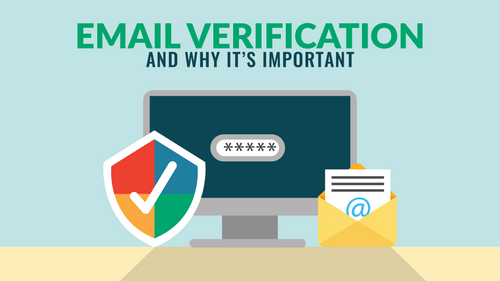Welcome to our comprehensive exploration of email verification—a pivotal process that underpins online security and trust. As authorities in this domain, we'll delve into the depths of email verification, examining its critical importance, implementation, and its role in safeguarding your digital world.
Understanding the Need for Email Verification
Email verification serves as the initial gatekeeper for digital interactions. Its importance is manifold, encompassing several crucial aspects:
Account Security: It ensures that only authorized individuals gain access to accounts and sensitive information.
User Verification: Email verification confirms the identity of users, fostering trust in online transactions and interactions.
Compliance: Many regulations, such as GDPR, require businesses to verify user consent before sending marketing emails.
Preventing Fraud: By confirming email addresses, organizations can thwart fraudulent activities and protect their reputation.
Communication Accuracy: Verified emails guarantee that critical communications reach the intended recipients.
The Email Verification Process
Email verification is a multifaceted process that varies depending on the platform or service. However, here is a general overview of the steps involved:
User Registration: Users provide their email addresses during registration on a website or application.
Sending Verification Email: The platform sends a verification email containing a unique link or code to the provided email address.
User Confirmation: Users must click the link or enter the code to confirm their email address.
Account Activation: Once verified, users gain access to the platform or service.
Ongoing Validation: Some platforms periodically re-verify email addresses to ensure they are still valid and accessible.
Why Email Verification Matters
Email verification is more than just a procedural step; it's a linchpin of trust and security in the digital age. Here's why it matters:
Reduces Fake Accounts: Verification deters users from creating fake accounts, enhancing the authenticity of user profiles.
Enhances Security: It prevents unauthorized access, protecting both users and businesses from potential breaches.
Ensures Effective Communication: Verified emails guarantee that important communications, such as account alerts and password resets, reach users reliably.
Boosts Deliverability: For businesses, verified email addresses improve email deliverability rates and reduce the likelihood of being marked as spam.
Email Verification Implementation
Implementing email verification effectively requires careful consideration of various factors:
User Experience: The verification process should be user-friendly and intuitive, minimizing friction for users.
Security Measures: Employ robust security measures to protect verification emails from interception or tampering.
Automation: Automation streamlines the verification process, reducing manual intervention and delays.
Error Handling: Implement error handling to guide users through issues like expired verification links or incorrect codes.
Compliance: Ensure compliance with relevant data protection regulations and user consent requirements.
Commonly Asked Questions About Email Verification
Is email verification mandatory?
While not always mandatory, it is a best practice for ensuring security, trust, and compliance.
How can I verify email addresses in bulk?
Several email verification services offer bulk verification options to validate large lists of email addresses.
What if I don't receive a verification email?
Check your spam folder, ensure the email address is correct, and request a resend if needed.
Is email verification secure?
Yes, when implemented correctly, email verification is a secure process that safeguards user information.
What's the role of email verification in marketing?
Email verification ensures that marketing emails reach valid, engaged recipients, improving campaign effectiveness.
In conclusion, email verification is an indispensable component of online security, trust, and effective communication. As you navigate the digital landscape, understanding its significance and implementation can empower you to protect your digital presence effectively and build trust with your audience.



